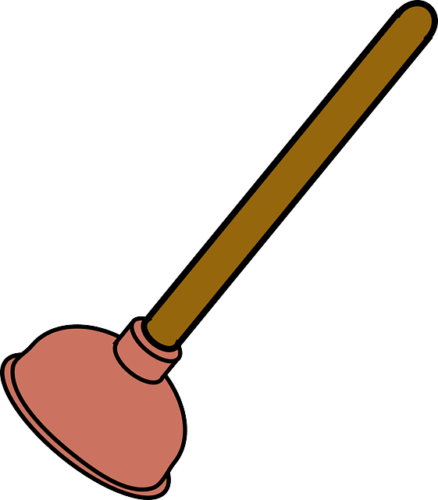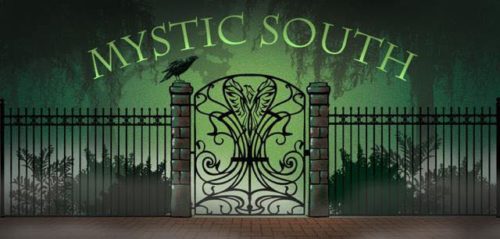Pagan Perspectives
The beginning of August is the heart of summer in the northern hemisphere. We soak in the sun, enjoy picnics with our families, and find ways to get outdoors as often as we can when the weather permits. There are just enough days left before fall to forget that eventually the temperatures will cool and the nights will grow shorter as we head toward winter. Many of us will celebrate a sabbat of abundance, featuring a table piled high with the gifts that nature provides: flourishing fruits and vegetables, mouthwatering smells from foods grilled outdoors, and the feel of lush green grass beneath our feet. During this time, we give thanks for what we have gained, both from our toil in the field and from our internal labors. One such gift is a recent experience at the Mystic South Conference, which yielded a harvest in the areas of endurance, exploration, and enlightenment in the form of a panel titled “Plunging Toilets for the Morrigan: Things You Wish People Had Told You About Priest Work.”
Mystic South is a Pagan conference in a traditional sense: there are academic papers, workshops, rituals, vendors, and fun social events. Because it is held in the deliciously sultry warmth of Atlanta, Georgia, in July, the indoor air conditioning beckons all to stay a bit longer. This sacrifice of time balances with the rewards of spiritual renewal and the expansion of community.

[Pixabay]
Being a priest or priestess is far less about the glamorous stuff and more about the practical. Every household needs a plunger or two. No one may like cleaning the toilet, but if this task is not done, then the home can be less than pleasant. Leading rituals, teaching students, and representing a tradition publicly are the fun parts of priesthood. Cleaning up the muck that comes with each of these responsibilities can make a long day even more grueling.
Sitting in a room with priests and priestesses from a variety of traditions, many of whom were nodding their heads or making vocal gestures of agreement with the presenters, reminded me of why this was one of the best presentations that I found at Mystic South: it hit everyone.
Throughout the presentation, I kept thinking about my early years, where what mattered was which gods called me, where I thought I fit in. It never occurred to me that it was okay simply to stop at the community worshiper level, or even at the level of a devotee with no formal oaths. I can’t recall hearing someone say that, either. All of the groups I explored seemed to have one thing in common: increased devotion would mean more public acknowledgement of that commitment through a progression up the degree ladder.
Even as I think of a few friends who stopped short of the priesthood level, I remember that they gave reasons as to why they did not progress beyond a certain degree. Usually these were life circumstances, such as health, family, or work obligations. In a few cases, someone said how a god or goddess told them that a formal oath was not needed; however, this was rare. Like many others, I thought that the long-term goal was one of forward progression. Practical devotion and work before taking oaths was just the start.
Our community is one of practicality. This means that all types of devotion at varying levels should not only be expected, but seen as necessary and respected. Looking back, I wonder if I would have gone as far if I had not equated increased devotion and worship with the need to serve on the priesthood level. As Lady Hecate had literally approached me, found a way for me to move over 800 miles away to a place where I knew no one, and guided me through the first five years on my path, I figured that service would be a logical outcome for me. My work was to be intercessory between the gods I worshiped and the community in which I lived. For others who seek the gods, this workshop reminded me that those who just show up for a ritual and have no intention of devoting to any path or deity are just as necessary as those who are willing to plunge the toilets on a regular basis to keep things running for all.

The logo for Mystic South [courtesy].
Another aspect that I enjoyed hearing about was a reminder of how varying priests and priestesses of a particular deity can, and often will, have different tasks to perform. In my tradition, we are polytheists – the gods are real to us, each with individual personalities. Nearly everyone in the tradition is in service to Hecate, yet each of us serves her for different tasks at different times, depending on their relationship with Hecate and what the goddess wills. For example, would I work with Hecate for tasks during the light half of the year or the dark half of the year? Would I work just with Hecatean rituals, or perform larger community service with the homeless? Would I work best as a guide, a psychopomp for those about to cross over and their families, or would I work best just teaching those who are new to Hecate? It is important to ask these questions while developing a relationship of service to a deity, and I am so grateful that this workshop reminded me of the importance of such a step.
The workshop presented two other harvest gifts: the first, self-preservation; the second, a reminder that “it’s not all about you.” Under self-preservation was firstly the reminder to keep up one’s own devotions beyond the group work expected of clergy. I, for example, do prayers every morning and evening as part of my regular practice. When I miss these for some reason, I feel off kilter. Secondly, I mentally reviewed who was part of my support network, and I asked myself if I had places to send the people I served if they had need of counseling beyond my capacity. Thirdly, I was reminded that self-preservation applies to ritual experience as well. I thought about how many rituals I had led where the overall goal to provide an amazing experience took precedence over nurturing my own ritual needs.
I don’t know how others cope, but when possible I find myself doing rituals solo beforehand, so that I can relax while performing the actual public ritual with others. When I have forgotten to do this, I have felt hollow. As the presenters stated frequently, these are among the many things people say they wish they knew before they entered priesthood.
Three other items fall into the “it’s not about you” category: these are the responses priests should have when someone else is in crisis, when they suffer personal attacks on themselves or their traditions, and their service with the gods.
For the first, when a student or a member is in crisis, the presenters argued, and I agree, that there is a time for professional help, and that time is sooner rather than later. People come to Pagan paths for a variety of reasons; pain can be a motivator to find a new path. That baggage does not leave the individual just because they choose to change traditions. I have seen this firsthand, and looking back, counseling and professional work done by others was absolutely critical for the long-term health and well-being of the individual in question. I am a firm believer in ritual work, but I also believe in using everything available in the tool box.
This workshop was one of the few that openly discussed personal attacks on those who serve, just because of their positions. We do not know everything; we are human, and we are quite fallible. Because we are human, we are subject to actions and errors that seem to make us vulnerable to attack. The work of priesthood is hard; the work of being human in some cases is even harder. The response of working to heal a rift first, regardless of personal feelings, was a good reminder that the easiest way to stop a crack from becoming a crater is to face it head on and to seal up the rift when possible. It may not be, and that realization is another part of understanding when “it’s not about you.” If a person has done their best to repair the damage, then they must make peace with themselves that a situation may or may not be resolved.
The final area of “it’s not about you” is the choice to serve as priest. This is a personal choice, but it is also not about the individual. I recall a piece by Crystal Blanton, “The Gods That Choose You,” where she spoke of her relationship with Yemaya and how she was called. “One day I was walking a path that I thought led to Cerridwen,” she writes, “and the next day there were obvious signs being presented that I was now a daughter of Yemaya and that was just the way it is.” In many ways, this is an accurate representation of how priesthood has worked for me as well.
Overall, the Mystic South experience was one of renewal, harvest, and regeneration. We often thank the gods for their gifts and their roles in our lives. Sometimes gifts are more than what we can physically ingest as food, what we see around us in nature and bright sunlight, or what we feel when we are in ritual. Sometimes the best harvest gifts are those that remind us of why we are on the path in the first place. Abundance brings joy and continued harvest to all. I look forward to Mystic South next year for continued renewal.
* * *
The views and opinions expressed by our diverse panel of columnists and guest writers represent the many diverging perspectives held within the global Pagan, Heathen and polytheist communities, but do not necessarily reflect the views of The Wild Hunt Inc. or its management.
The Wild Hunt is not responsible for links to external content.
To join a conversation on this post:
Visit our The Wild Hunt subreddit! Point your favorite browser to https://www.reddit.com/r/The_Wild_Hunt_News/, then click “JOIN”. Make sure to click the bell, too, to be notified of new articles posted to our subreddit.